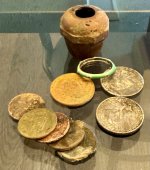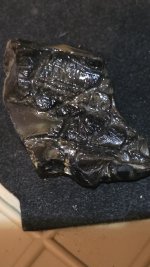redbronco
Sr. Member
- Mar 28, 2008
- 372
- 202
- Detector(s) used
-
Garrett AT Pro
Nokta Makro Simplex
- Primary Interest:
- All Treasure Hunting
Has anyone ever tried to find the old settlement of Americus in Jackson County. I am coming up a good bit of info/mythology on it but if anyone knows the exact location, it has never been told. Might need Shaggy and Scooby for this mystery.





